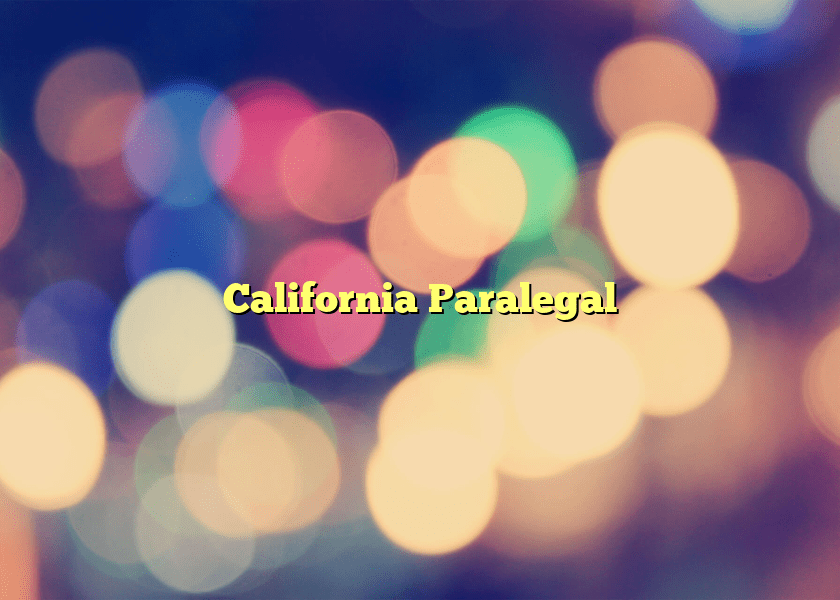California Paralegal
There are currently no California laws that govern the licensing of California paralegals. But in an effort to standardize more the parameters of a paralegal’s work from the legal viewpoint, the California Alliance of Paralegal Associations (CAPA) promulgated during the year 2000 legislative session a legislation that aimed to do just that. This legislation was called the Assembly Bill (A.B.) 1761, the pertinent portion of which provides for a definition of the term “paralegal.”
Strongly promoted as a consumer protection measure, A.B. 1761 was considered to be a “dream bill.” The reason behind this law on California paralegals is to differentiate traditional paralegals from those who work independent of lawyer or attorney direction.
In order to protect the public from con artists and other disreputable individuals who prey upon unsuspecting persons seeking alternatives to attorney-provided legal services, A.B. 1761 sets forth some stringent measures and restrictions on a paralegal’s scope of responsibility.
Before the passage of A.B. 1761, the only legislation on California paralegals set forth a few requirements for paralegals who directly serve the public. One of the stipulations provided that such California paralegals could no longer call themselves as “paralegals” but, instead, must be named “legal document assistants (LDAs).”
Directives seeking to implement such legislation additionally provide that California paralegals or LDAs must post a bond in each country where they work. Penalties for LDAs who cross over the line into the unauthorized practice of law were also imposed.
With the passage of A.B. 1761 and upon its signing into law as Sections 6450, et. Seq., of the California State Business and Professions Code, more aspects of the field of California paralegal’s profession are covered.
For instance, California paralegals who violate the laws could face stiff fines and/or jail time. The duties that a California paralegal could perform were also narrowly defined. Other aspects that were directly addressed by A.B. 1761 include the following:
* Continuing Education Programs for California Paralegals – to be provided only by either the state bar or by state bar-approved providers
* Legal disputes with a California paralegal – attorney’s fees are only awarded to prevailing plaintiff, i.e., a paralegal would never receive attorney’s fees even if he prevails in court
* Educational standards – California paralegals are now required to maintain extensive educational and continuing education records
No sooner than six weeks after the Business and Professions Code sections 6450, et seq., went into effect that a new bill was introduced by a Sacramento law firm, seeking to clarify the allowable tasks that a California paralegal may perform. The bill includes the following language: “Paralegal means a person who holds him or herself out to be a paralegal, who is qualified by education, training, or work experience…”
